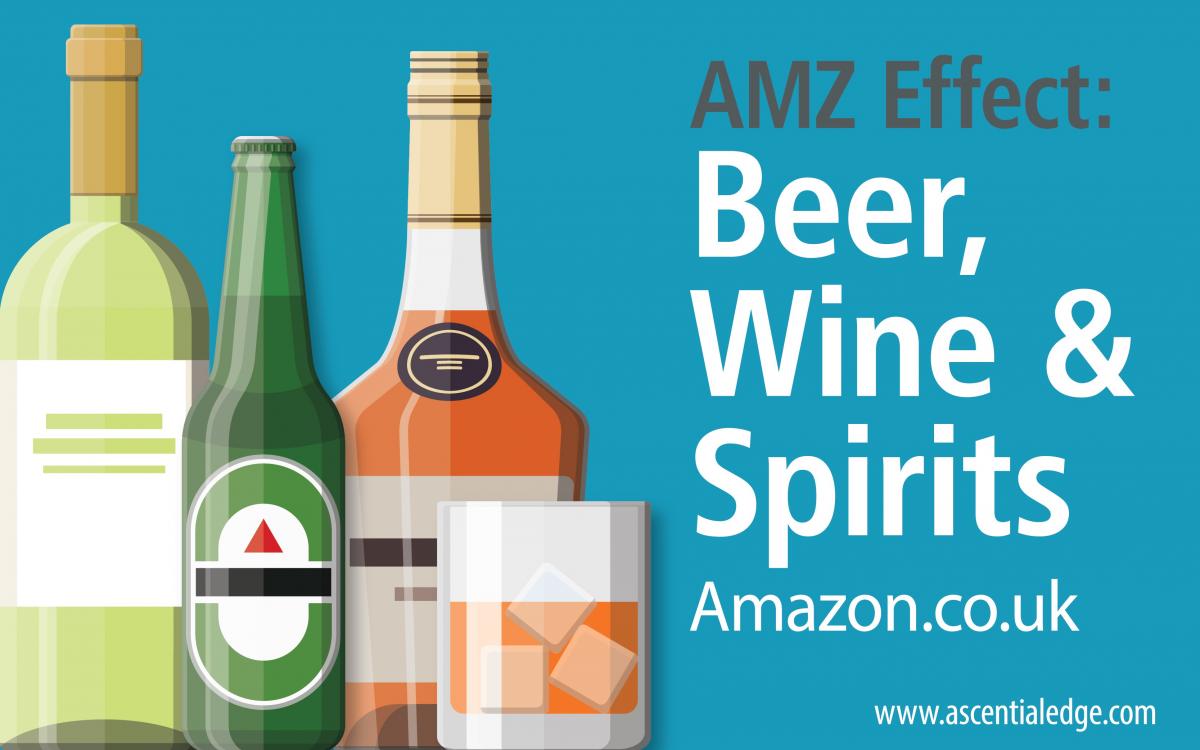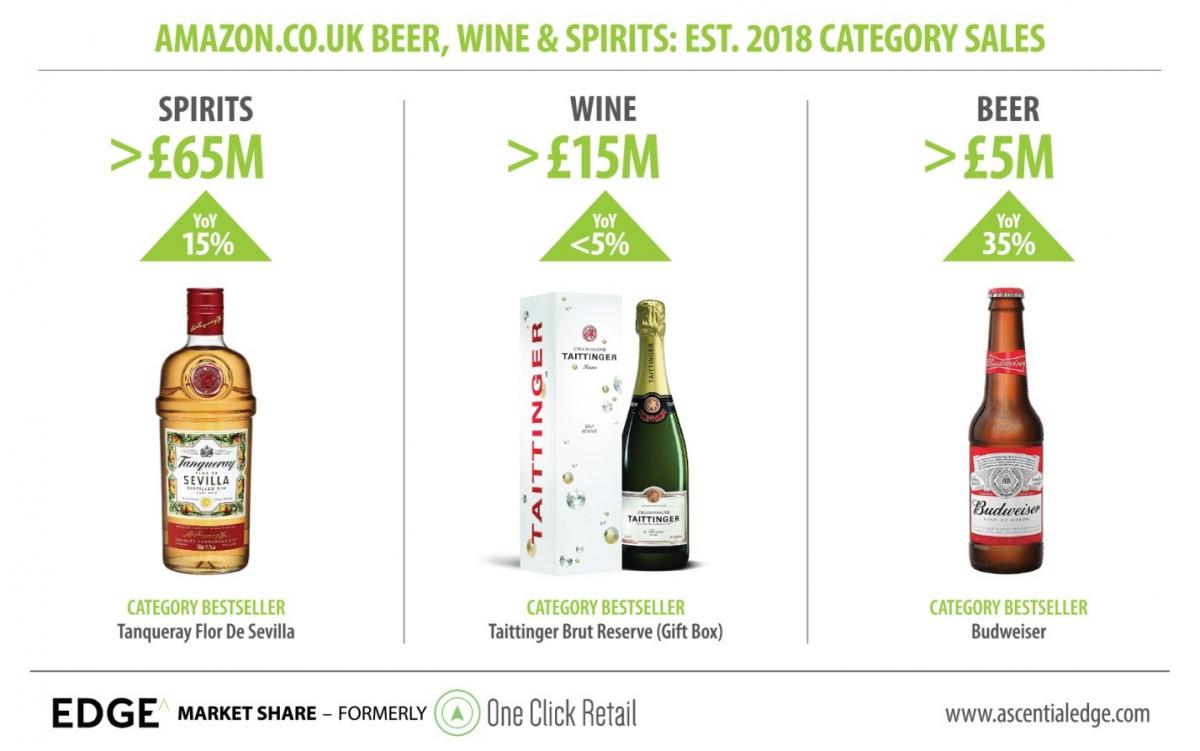At least 4.2 million people in the UK are planning to take part in Dry January 2019. The tradition to abstain from alcohol for the first 31 days of each year has grown rapidly in popularity, with a YouGov poll finding that the number of participants grew by almost 35% this year.
People are attracted to Dry January as a way of 'resetting' both their bodies and their bank accounts. The holiday season is traditionally a time of plenty, when people happily indulge in food and drink as a means of celebration, while also sparing no expense when it comes to buying countless gifts for family and friends. Consequently, by the time January rolls around many people love the idea of abstaining from alcohol in order to both recover from their overindulgence and to save money in the process.
It can also be argued that moderating consumption is more important than ever because the appreciation of fine alcoholic beverages is at an all-time high. Craft beer, cider and cocktails have gone mainstream and inspired a more adventurous palate among consumers. This has culminated in the trend of beverage advent calendars: beer, wine, whisky and gin brands have all had success selling in mix 24 packs containing a different drink to try every day from December 1st to Christmas Eve.
Beer, wine and spirits have always made great gifts, but with the advent calendar trend beverage brands have encouraged holiday shoppers to begin even sooner. This is a gift that must be received before December 1st to be properly enjoyed, so the conclusion is inescapable: the weekend of Black Friday and Cyber Monday is the best time to buy these gifts.
These crucial shopping days which traditionally kick off the holiday retail season are increasingly driven by the online channel. This November, ecommerce accounted for 21.5% of total retail in the UK and we can confidently estimate (based on 2017 figures) that Amazon – the largest retailer in the UK after the Big Four grocers – was responsible for at least a third of that. In 2019, beverage brands have no choice but to consider the Amazon Effect when planning their UK retail strategy.

The UK has one of the most mature online alcohol markets in the world, with ecommerce claiming nearly 10% of off-premise alcohol sales. Compared to almost any other retail category, this may not sound like an impressive figure, but it's second only to France globally (at a similar figure). By comparison, the online market share of alcohol sales in the US is only about 1%.
Already a world-leader in this space, the UK's online alcohol market is ripe with potential. On Amazon.co.uk, our estimates show total 2018 beer, wine & spirits sales of at least £95M, an increase of 8% over 2017, but this is far from a saturated market. Online beverage retail remains fragmented, with numerous specialty stores controlling a large share, but as more casual consumers do more of their grocery shopping online and Amazon continues to beat the competition on price and convenience, the ecommerce giant will inevitably increase its hold on the market.
Category Breakdown
Alcohol consumption in the UK has been falling steadily for years. Online sales of beer, wine & spirits are not merely replacing brick-and-mortar sales, they're growing while the overall market is shrinking. Spirits grew by 15% YoY, led unsurprisingly by Whisky and Gin.
Whisky, which earned an estimated £28M in 2018, did not grow as rapidly as most other spirit subcategories. But it's not that whisky is falling in popularity – it's that it leads the pack in online penetration, thanks in part to sites like The Whisky Exchange and The Whisky Shop being early adopters of online spirit sales. Whisky tends to have more of a collector's culture than other spirits, so offering this audience the ability to search out specific whiskies through an online database, and to be able to buy them right then and there, has been very effective.
By engaging with whisky connoisseurs and offering a selection of products and resources beyond what a retail shelf could hold, such retailers kick-started online whisky – but they remain specialty stores. These retailers retain a lock on the niche market but most consumers are just as happy going to Amazon and enjoying the convenience of adding spirits to a large shopping cart along with groceries, household consumables, electronics and more.
As a result of the early success of online whisky sales, whisky on Amazon.co.uk is now beginning to plateau while other beverage categories remain in the high growth phase. Spirits such as gin, which earned over £20M in 2018, are still in the period of transition from brick and mortar to online – in 2018, Amazon's gin sales grew by 35% YoY. Gin also saw a spike in sales on Prime Day, selling nearly twice as much as the previous year, while whisky sales dropped by 30% on the same day.
However, both whisky and gin hit a slump during the 2018 holiday season, with spirit sales shifting suddenly in favour of vodka (50%+ growth) tequila (45%+) and Flavored Spirits (30%+). And they were not alone: wine has also hit a slump in the UK.

The number of regular wine drinkers has fallen by around 1 million since 2015 and this trend is clearly visible in Amazon's figures. Compared to beer and spirits, wine stalled in 2018, recording less than 5% growth. When zooming in on the holiday season, the story gets much worse, with sales declining by more than 30% compared to 2017.
The decline in wine and spirits is consistent with consumers reducing their alcohol consumption. And that's where beer comes in.
Beer alone had a very good year on Amazon.co.uk, growing by 35% compared to 2017. This is partly caused by the continuing rapid consumer adoption rate. According to 2017 figures, consumers spend a little over twice as much on wine per year compared to beer, suggesting that the beer category on Amazon.co.uk remains smaller than it should be (at only a third of the size of wine). Since beer still needs to catch up to the ecommerce penetration of wine and spirits, it's no wonder it's the fastest growing category on Amazon.
But beer is unique in another way. The UK's millennial population is increasingly choosing to drink less alcohol. Beer, as the drink with the fewest standard units of alcohol per glass, is one way to reduce alcohol intake without abstaining. Non-alcoholic beer is also responsible for some of this growth, with alcohol-free versions of Beck's and Heineken ranking as #15 and #17 in the Ale and Lager subcategories respectively.
The seasonal slump experienced by the other categories is also non-existent in beer, with Beer Hawk in particular driving strong sales. Beer Hawk is a craft beer distributor that specializes in mix-packs, capitalizing on the consumer curiosity inspired by the craft beer trend. The Sommelier's Introduction to Craft Beer 12-pack is Beer Hawk's bestseller, but three different beer advent calendars followed in the brand's 2018 bestseller list.
Despite Beer Hawk's success, most of the growth in Amazon's beer category has been experienced by lagers, with Budweiser leading the pack. Lager sales grew by over 60% YoY and a prime motivator is consumers moving toward lighter beverages with lower alcohol content.
Conclusion: Having Amazon on your Side
Don't just take our word for it: some of the world's biggest beverage brands have been realizing the opportunity posed by Amazon in the UK. Pernod Ricard, the world's second-largest wine and spirits producer, announced in mid-2018 that it had dramatically increased its Amazon ad spend, to a strong return on investment. Johnnie Walker's Game of Thrones blend initially launched on Amazon before being made available to other retailers. And both Bowmore and Highland Park produced new whiskies exclusively for Amazon in late 2018.
Beer, wine and spirits are moving online. Amazon is the UK's most-visited online retailer, already responsible for over a third of online sales and counting. To tap into the huge potential of the ecommerce channel, beverage brands need to have Amazon on their side in 2019.



